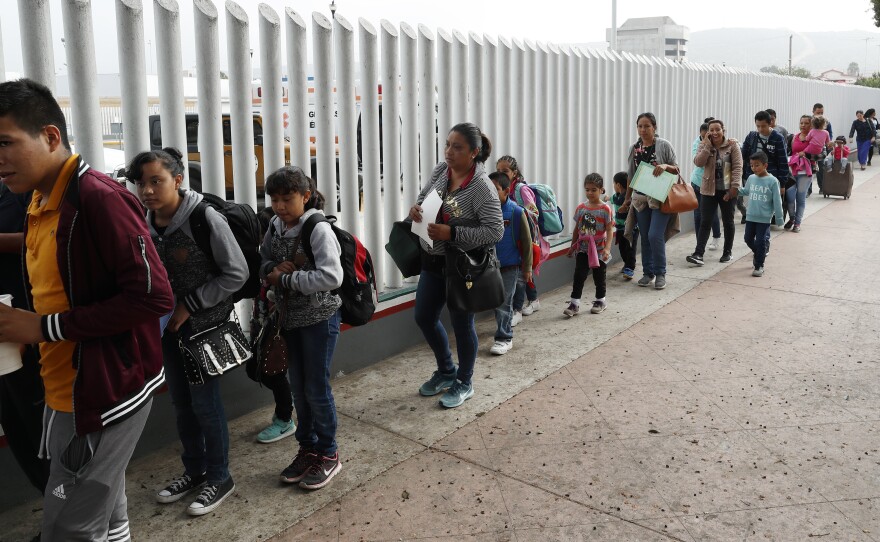UPDATE: 5:20 p.m. January 30, 2019
Casa Cornelia Law Center, which provides legal services to migrant children and their families, said it is gravely concerned that the Trump administration's plan to return certain asylum-seekers to Mexico while their asylum proceedings unfold in the U.S. "will result in a denial of access to counsel."
U.S. authorities are telling returned asylum-seekers that they can get legal counsel from Casa Cornelia, but the law center said that is unlikely:
We are investigating if and how we can represent migrants subject to the MPP. Unfortunately, there are significant legal and practical barriers to being able to represent this population given the reality of the MPP. We have shared with representatives of both the US and Mexican governments that representation of these individuals will be at least extremely difficult and perhaps impossible. We are gravely concerned that, functionally, the MPP will result in a denial of access to counsel.
Original Story
Homeland Security Secretary Kirstjen Nielsen toured the San Ysidro Port of Entry Tuesday to review a new pilot program to return some Central American asylum seekers to Mexico as their asylum proceedings unfold in the U.S.
That morning, a Honduran man who is seeking asylum in the U.S. was temporarily returned to Tijuana under the program, called "Migrant Protection Protocols."
A Mexican official who spoke on condition of anonymity told KPBS that unaccompanied minors and people who fear persecution in Mexico will be exempted. It’s unclear whether families will be involved, given a disagreement between the two countries. The Department of Homeland Security says family units will be a part of the program, but the Mexican government wants the focus to be on single adults. For now, the program will take place only at the San Ysidro Port of Entry, the country’s busiest border crossing.
Every day, approximately 20 names will be picked from a tattered notebook that contains a makeshift asylum wait list in Tijuana. These people will cross the border under a legal doctrine known as “entry-fiction," where they're in the U.S. but not officially recognized to have entered.
They’ll be returned to Mexico within 12 to 24 hours, with a notice to appear in U.S. court and a humanitarian visa from Mexico.
Mexican and U.S. authorities are asking San Diego-based nonprofits for help connecting asylum seekers to legal services after they’re returned to Mexico. But Andrea Guerrero of Alliance San Diego said this is unrealistic, and that migrant advocacy groups here don’t have the capacity to deal with this.
“It's unreasonable to expect that they're going to be making international phone calls to access U.S.-based legal service providers who may or may not have the capacity to cross an international border," Guerrero said. She added that the new program "undermines" the due process rights of asylum seekers.
The only pro bono legal service provider in Tijuana is Al Otro Lado. Nicole Ramos, an attorney with the nonprofit, said they don't have the capacity to represent the number of individuals that the U.S. plans to return to Mexico, and that this program "will complicate even the most basic presentation of a case," as well as expose asylum seekers to historically high levels of violence in Tijuana.






